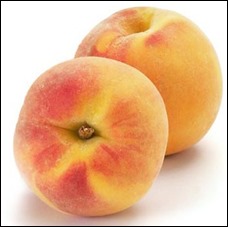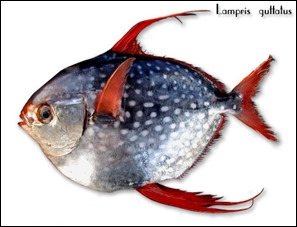Italian Grammar Quiz – The Solutions Posted by Serena on Jan 22, 2014 in Grammar
Here, as promised, are the correct answers to the quiz that we published a few days ago. If you haven’t already had a go at it you can find it here.
1. It keeps the wind off your face in the car. The correct answer is il parabrezza (literally ‘the breeze stopper, the windshield/windscreen of a car). Il paravento (lit. the wind stopper) is a wind break, while il paraspifferi is a draft excluder.
2. Mrs Rossi is on the telephone and she wants to talk to Maria. How would you say to her, using the polite form, ‘I’ll pass her to you’? The correct answer is Gliela passo subito because the personal pronouns le (= a lei, ‘to you’ polite) and la (= her, direct objects) join together becoming the combined pronoun gliela. The sentence Te la passo subito is grammatically correct but is used for talking to a friend, while Le la passo subito is incorrect. For more details about combined personal pronouns check here
3. Which one of the following sentences would you use to say ‘Giovanni said he would go to the Dolomites for Christmas’? The correct answer is Giovanni disse che sarebbe andato sulle Dolomiti per Natale: we use the past conditional to express the idea of ‘the future in the past’, i.e. whereas in English we say ‘said he would go’, in Italian we use ‘said he would have gone’.
4. You go to il fruttivendolo (the greengrocer) to buy some fruit, but something’s wrong with your shopping list, can you spot the mistake? un chilo di mele, mezzo chilo di banane, un chilo di pesce, mezzo chilo di ciliegie. The correct answer is un chilo di pesce (a kilo of fish, which you’d normally by from il pescivendolo, the fishmonger). What you probably wanted was un chilo di pesche (a kilo of peaches). This is a very easy mistake to make.
 |
 |
| Due pesche | Un pesce … spot the difference? |
5. Which is the correct sentence to use if you want to say ‘When I was a child I wanted to become a doctor’? Da bambina volevo diventare un dottore / Da bambina ho voluto diventare un dottore / Da bambina sono voluta diventare un dottore. The correct answer is Da bambina volevo diventare un dottore. We use the imperfect tense, volevo, because my wanting to become a doctor lasted over a period of time rather than a specific point in time. See this blog for the use of the imperfect tense vs present perfect.
6. Which is the correct sentence to use if you want to say ‘Let’s hope that the weather will be nice tomorrow’? Speriamo che domani farà bello / Speriamo che domani faccia bello / Speriamo che domani fa bello. The correct answer is Speriamo che domani faccia bello. See this blog for the use of the subjunctive tense.
7. Which is the correct sentence to use if you want to say ‘I saw Bruno shopping at the supermarket’? Ho visto Bruno facendo la spesa al supermercato / Ho visto Bruno facente la spesa al supermercato / Ho visto Bruno che faceva la spesa al supermercato. The correct answer is Ho visto Bruno che faceva la spesa al supermercato. This blog about the gerundio will explain why.
8. After the Christmas holidays the Panettoni are on sale at half price so you buy two of them. What do you tell your spouse when you arrive home with them? I Panettoni sono in offerta a metà prezzo, così ne ho comprati due / così ne ho comprato due / così ho comprato ne due. The correct answer is I Panettoni sono in offerta a metà prezzo, così ne ho comprati due. Read this article to find out why.
![pannelLO_SALDI_PER_WEB[1] pannelLO_SALDI_PER_WEB[1]](https://blogs.transparent.com/italian/wp-content/uploads/sites/4/2014/01/pannelLO_SALDI_PER_WEB1_thumb1.jpg) |
| Everything at Half Price |
9. You are talking on the telephone to Signor Bianchi, but you need to check something first in order to answer his questions. How would you say ‘I’ll phone you back tomorrow, Mr Bianchi’? Gli ritelefono domani, Signor Bianchi / Le ritelefono domani, Signor Bianchi / La ritelefono domani, Signor Bianchi. The correct answer is Le ritelefono domani, Signor Bianchi. Read our article about the use of formal and informal personal pronouns to find out why.
10. Using the si impersonale (impersonal form), how would you say “It’s easier to work when you are relaxed’? Quando si è rilassato si lavora meglio / Quando si ha rilassato si lavora meglio / Quando si è rilassati si lavora meglio. The correct answer is Quando si è rilassati si lavora meglio. Why? Find out here.
I hope you enjoyed our quiz. If you have any further questions please post a comment. A presto.

Build vocabulary, practice pronunciation, and more with Transparent Language Online. Available anytime, anywhere, on any device.




Comments:
Angela Woolley:
I liked the challenge but admit to not doing very well! Re question 5 (which I did get right), does that mean that the person concerned didn’t become a doctor or doesn’t that matter in this case? I think we learnt:
Volevo andare al parco (I wanted to go but didn’t get there)
Ho voluto andare al parco (I wanted to go and did get there)
Or am I even more confused than I thought?!
Serena:
@Angela Woolley Salve Angela, and sorry for creating more confusion, but the Italian language does never follow simple straight rules like they try to teach you in the Italian classes.
Verbs expressing desires, feeling or thoughts such as volere (to want), pensare (to think), credere (to believe) in the past are normally used in the imperfect tense, because the imperfect tense expresses a continuity. What I mean is that thoughts and desires usually are not actions that take place in a precise moment (typical of the passato prossimo), but they stay with you for a long time (typical of the imperfetto). Therefore I can say: “volevo andare al parco, così appena ha smesso di piovere sono uscita”. The second example, “ho voluto andare al parco”, or better, “sono voluto/a andare al parco”, is a finished sentence in itself: “Cosa hai fatto stamattina? Sono voluta andare al parco” (implying that I went there).
Spero di essere stata chiara.
Saluti da Serena
Angela:
Salve Serena,
Many thanks for your reply, it makes sense again now and I need refer to your grammar blogs more often (just when you think you’ve nearly cracked it with a bit of grammar, another ‘spanner’ appears in the ointment!)